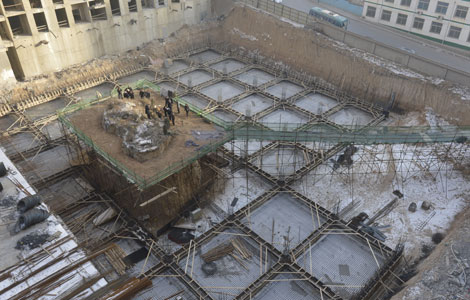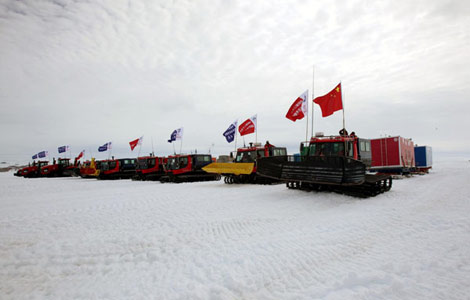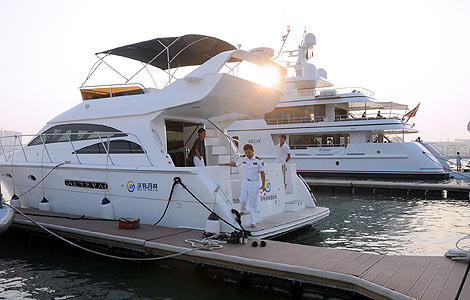
SINGAPORE - China's economic growth is expected to bounce back to 8.4 percent next year as "recovery has set in the final months" of this year, the World Bank said in a report on Wednesday.
"In 2013, China's economy is expected to grow at 8.4 percent, fueled by fiscal stimulus and the faster implementation of large investment projects," the World Bank said in its latest East Asia and Pacific Economic Update.
The report projected a growth of 7.9 percent for China in 2012, which is 1.4 percentage point lower than last year's 9.3 percent and the lowest since 1999.
Weak exports and the tightening measures to cool off the housing sector slowed down China's economy this year, it said.
Developing East Asia excluding China is projected to grow by 5.6 percent this year, up from 4.4 percent in 2011. The continuing strong performances by Indonesia, Malaysia and the Philippines will boost the growth of the region to 5.7 percent in 2013 and 5.8 percent in 2014, respectively.
The Myanmar economy is also a bright spot in the region as authorities moved ahead with reforms.
The East Asia and Pacific region as a whole is projected to grow by 7.5 percent in 2012 and 7.9 percent in 2013, respectively. Keiko Kubota, World Bank senior economist, said authorities in most countries in the region have room to ease their fiscal policies when necessary.
"The East Asia and Pacific region is becoming increasingly important for the world economy, and is expected to contribute almost 40 percent of global growth in 2012," said Bert Hofman, chief economist of World Bank for East Asia and Pacific.
The share of people living under $2 a day in the region is forecast to fall to 23.3 percent by the end of 2014 from 28.8 percent in 2010.
Nevertheless, the report also highlighted considerable risks that could slow the region's momentum, including possible delays of the much-needed reforms in the eurozone, the risks from a " fiscal cliff" in the United States and a possible sharp decline in the growth of investments in China.
The report also discussed the growing concern that the renewed monetary expansion in the G-3 economies, namely the United States, Eurozone and Japan, could trigger a flood of capital inflows that could lead to asset bubbles and excessive credit growth.
Hofman said that while the bulk of the capital flowing into the region consists of foreign direct investments, which create jobs and drive growth in the production capacity, authorities should close monitor the developments in their capital accounts.
"Appropriate exchange rate arrangements and capital market development could provide a cushion against undesirable effects of capital inflows, while macro-prudential measures could guard against excessive credit growth," he said.







